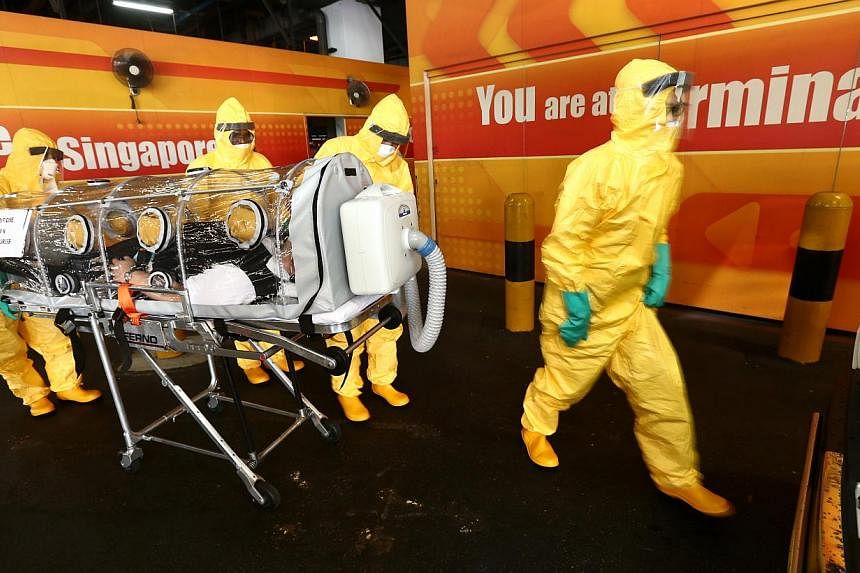SINGAPORE - From Wednesday, all citizens of Guinea, Liberia and Sierra Leone must have a visa before they will be allowed into Singapore. This visa is compulsory regardless of whichever country they are departing from before arriving here.
Minister of State for Health Lam Pin Min announced this new measure in Parliament on Monday, saying it will "allow for better oversight and control of entry" of citizens from the three countries in West Africa where the deadly Ebola virus is still spreading.
It will also make it easier to trace the people they come in contact with, if necessary.
Dr Chia Shi-Lu (Tanjong Pagar GRC) had asked if the Ministry of Health (MOH) would consider banning people from affected African nations from entering Singapore and Singaporeans going there until the epidemic is brought under better control.
Dr Lily Neo, also from Tanjong Pagar GRC, asked if the Ministry plans to step up efforts to "counter and contain" any spread of the Ebola virus here.
Dr Lam said Singapore has in place border health measures at air, sea and land entry points.
All nationals and travellers from Guinea, Liberia and Sierra Leone, as well as from the Democratic Republic of the Congo and Mali, who arrive by air are screened for fever and asked to fill in a questionnaire to assess their risk of exposure to Ebola.
They also need to provide their contact details in a health declaration card.
But Dr Lam said these border health measures alone, while forming part of Singapore's "multi-layer defence against Ebola", are not enough.
This is because they "will not be able to identify persons who are still in the incubation period and are not symptomatic, or are not truthful in answering the screening questionnaire."
Hence, Singapore's decision to impose a temporary visa requirement on nationals from countries where Ebola is rife.
Congo is not included as the World Health Organisation (WHO) expects to declare it Ebola-free on November 21 if there are no further cases reported in the country.
Mali, with Nigeria, Senegal, Spain and the United States (US), has imported cases of Ebola, with some having limited transmission, said Dr Lam.
As of end-October, the WHO has reported a total of 13,567 cases of Ebola, including 4,951 deaths.
Meanwhile, Non-Constituency MP Gerald Giam asked what lessons Singapore has learnt to prevent the mistakes that had led to transmission of cases in Spain and the US.
Dr Lam replied that three of the five cases of transmitted Ebola in these two countries involved healthcare workers and were possibly caused by "breaches in infection control measures such as improper removal of personal protective equipment."
He said healthcare workers here "have not been complacent" and Singapore hospitals have been reminded of the need for strict infection control measures and adherence to stringent protocols when managing both suspected and confirmed Ebola cases.
To another query from Mr Giam on what assistance Singapore has given to the affected African nations, Dr Lam said Singapore has been helping the WHO's efforts.
It has given US$150,000 in cash as well as medicines, medical supplies and personal protective equipment.
Ebola spreads largely through direct contact with bodily fluids such as blood and mucous.
Dr Lam added that Singapore will continue to work with the WHO in its global effort to fight Ebola "based on our capability and available resources including the possiblity of seconding one of our experts to assist WHO headquarters."

